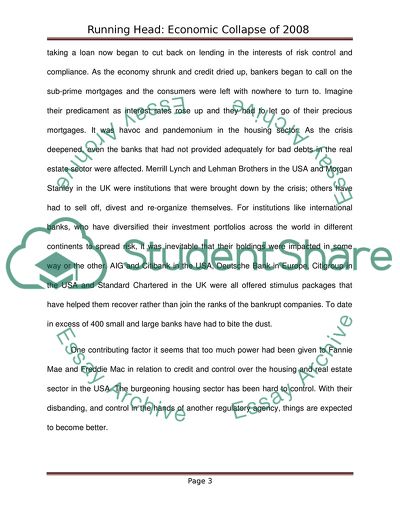Cite this document
(The Economic Collapse of 2008 Research Paper Example | Topics and Well Written Essays - 2750 words - 1, n.d.)
The Economic Collapse of 2008 Research Paper Example | Topics and Well Written Essays - 2750 words - 1. Retrieved from https://studentshare.org/macro-microeconomics/1751558-economic-collapse-of-2008
The Economic Collapse of 2008 Research Paper Example | Topics and Well Written Essays - 2750 words - 1. Retrieved from https://studentshare.org/macro-microeconomics/1751558-economic-collapse-of-2008
(The Economic Collapse of 2008 Research Paper Example | Topics and Well Written Essays - 2750 Words - 1)
The Economic Collapse of 2008 Research Paper Example | Topics and Well Written Essays - 2750 Words - 1. https://studentshare.org/macro-microeconomics/1751558-economic-collapse-of-2008.
The Economic Collapse of 2008 Research Paper Example | Topics and Well Written Essays - 2750 Words - 1. https://studentshare.org/macro-microeconomics/1751558-economic-collapse-of-2008.
“The Economic Collapse of 2008 Research Paper Example | Topics and Well Written Essays - 2750 Words - 1”, n.d. https://studentshare.org/macro-microeconomics/1751558-economic-collapse-of-2008.


